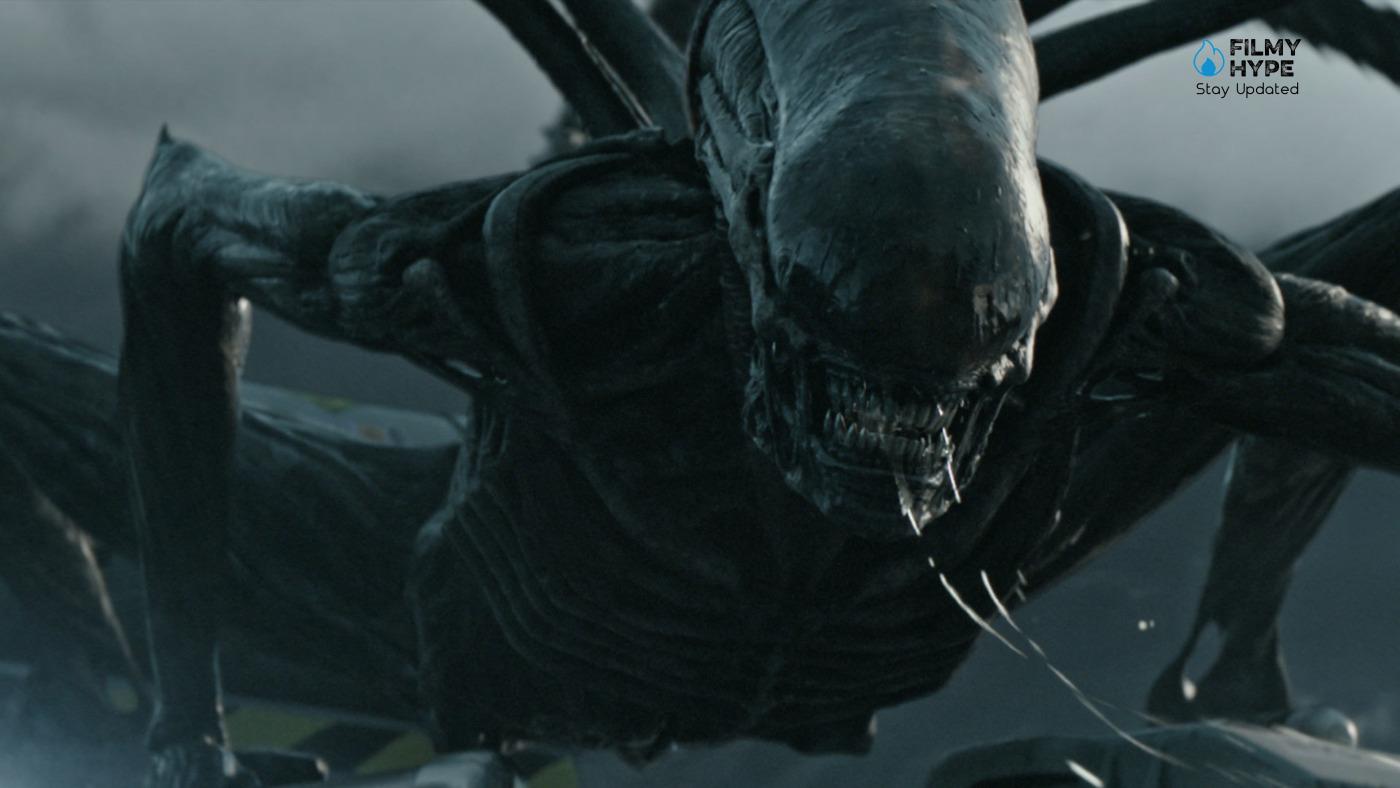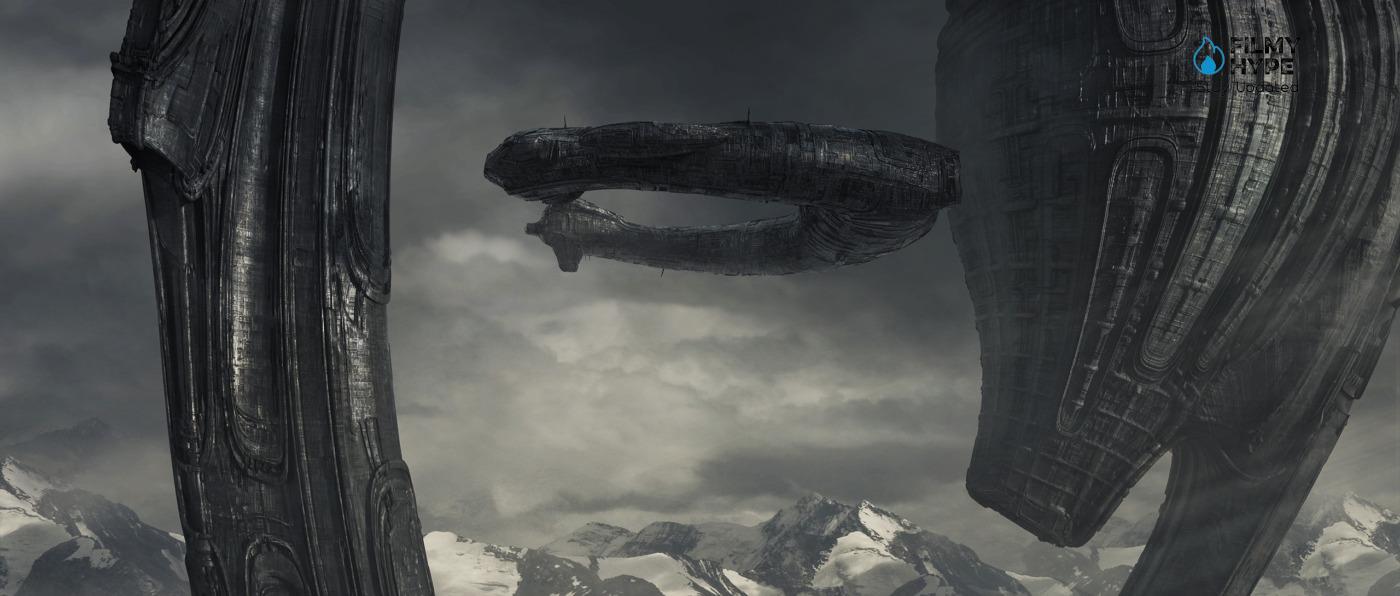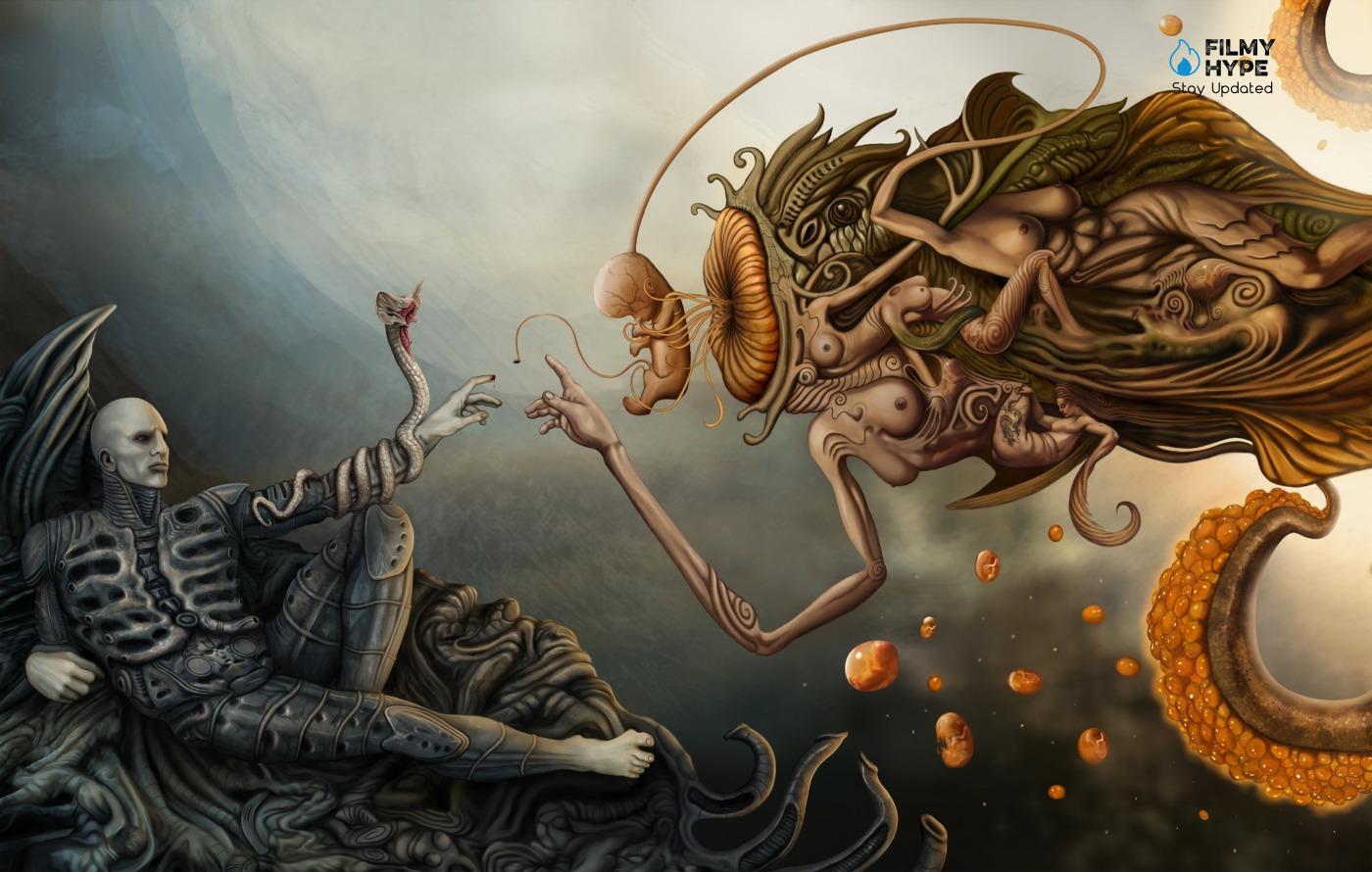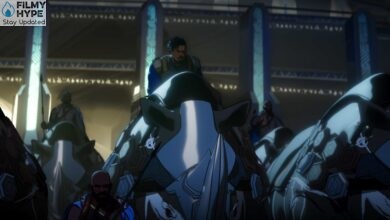Alien Covenant: Divine Androids Play God? Artificial Life and Xenomorphs
Prometheus radically revolutionized the Alien movie saga after Alien Covenant. The return to the helm of the series by Ridley Scott, creator of the xenomorph universe, proved to be an intriguing turning point within the chronology of the saga, a new narrative line that promised to finally answer the questions left unanswered by the first chapter of the saga, than to enrich it with a series of themes dear to the director and which would have given greater definition to the myth of the xenomorph. A declaration of intent which, after a less than enthusiastic reception for Prometheus, sought redemption in the second chapter of this announced trilogy, Alien: Covenant.

That Prometheus was not a stand-alone project was clear not only after watching the film but also from the intentions of Scott, who, supported by Damon Lindelof, had in mind to create a complex narrative arc that linked to what was told in Alien. Contrary to what was done at the time in 1978, where we started from a complex work of world building and then carried out a painful work of subtraction arriving at the creation of a space horror movie, with Prometheus we had finally given the Alien universe a more defined connotation, the true origin of the struggle between humans and xenomorphs was being presented to the public.
Alien Covenant: The Human Adventure After Prometheus?
It could also be noted that within the saga we had enjoyed a greater concreteness of the social environment of this future in Aliens, where Cameron and Walter Hill had inserted the pillars of this future mosaic into the script. However, they were still absent from the foundations of the saga. Scott intended to remedy this apparent lack, aware of how the first Alien had a highly unexpressed potential on a narrative level:
It was basically a movie with seven people trapped in a can, with a bet on who would survive and who wouldn’t. From a fun perspective, it was a genre film, if you like B-movies made as a big title, with a great cast and a magnificent creature. We had raised the bar
In reality, the saga already had all the essential components to be developed and not show fragility, thanks to Cameron’s work. Leaving aside the legends of a rivalry between Scott and Cameron, born from Scott’s lack of appreciation for Cameron’s work, The Aliens movie has been considered for years the turning point of the saga, the moment in which we concluded the epic of Ellen Ripley in reality with precise points of reference, with the presence of the ‘canons’ of the series. The role often played by the second chapters of the great sagas of cinema, a fate also foreseen for Alien: Covenant.
During the development of Prometheus, Scott had confirmed his intention to reach a point of contact with Alien. Alien: Covenant should have played this role, but the decidedly, and deliberately, open ending of Prometheus had radically changed this approach, so much so that Scott himself in 2015 began to talk more about a sequel, going so far as to specify what the legacy was of this new chapter of the saga, within the series:
Considering that it is a zero point from which everything is starting again, with Prometheus I realized that people still have an interest in the alien, what he represents, and his evolution. What we call eggs, face huggers, and chest bursters. People still want to see them, so I decided to show them again, but not completely, there are still many new things to discover. Prometheus was built on ‘who’ and ‘why’ created the aliens, now it’s time to explain who perfected them and for what reason
Scott’s intentions were therefore very precise, but once again his return to the helm of the saga risked being put in difficulty by a parallel project. Prometheus had been postponed for a long time due to the first crossover between Alien and Predator, but Alien: Covenant risked following the same fate due to another project linked to xenomorphs, entrusted to the then emerging Neill Blomkamp, appreciated for his District 9. Ideally, a sequel to Aliens should have also involved Scott, but given Scott’s intention to continue his new narrative arc, Blomkamp’s project was suspended, ultimately ending up becoming one of the many films never made. The attention of fans of the saga had to be completely focused on the work of Scott, who was rewriting the basis of his saga.
Back to Alien?
Bearing in mind the spirit of narrative simplicity of the first Alien, it is easy to understand how some elements already present in this first chapter are a fundamental part of the DNA of the series. The very essence of the xenomorphs is a lethal intertwining of ferocious ferina and embodiment of atavistic horror, which cannot be taken out of the Alien equation. In Prometheus, these components were only lightly touched on in the final scenes, but if the intention was to reconnect to Alien the time had come to bring these basic components of the saga back on stage. Detail that did not escape John Logan, who supported Scott in writing the screenplay:
With Alien: Covenant, I want to write a story that really has that horror feel of the original Alien, because when I saw that movie as a kid it was one of my most revelatory moments. It was so overwhelming in what it conveyed to me and its implications, that when I started talking to Ridley about what Alien: Covenant should be, we tried to assimilate the original horror spirit into the film while keeping alive the philosophical atmospheres of Prometheus.
This rapprochement with the original spirit of the saga is also found in the choice to include the name of the franchise in the title of the film. Despite being a direct sequel to Prometheus, the new chapter of the saga is not simply Covenant, but becomes Alien: Covenant. The narrative lines started by Prometheus are however preserved and evolved, a continuity that had already emerged during the writing phase of the screenplay, with the provisional title of Paradise Lost. Scott once again seemed to turn to Milton’s philosophical vision with his Paradise Lost, already touched upon at the time of Prometheus, which takes on a tone of greater relevance with Alien: Covenant, especially if we consider who the true protagonist of the film is: David.

In the finale of Prometheus, the android played by Michael Fassbender set out with Elisabeth Shaw (Noomi Rapace) in search of the Engineers’ home planet. Ten years have passed since the ending of Prometheus, when a ship of colonists, following a solar flare, is awakened from cryosleep to face the crisis. Having overcome this impasse, aided by their synthetic Walter (played again by Fassbender), the crew receives a signal from a nearby planet, far from their route, which they decide to follow to discover its origin. And this choice will be the beginning of their ordeal.
On a conceptual level, Alien: Covenant shows that it wants to continue the cosmic journey in search of knowledge undertaken by Shaw, but we quickly find ourselves faced with a sudden change of point of view. From the previous chapter, it seems that the founding concepts, i.e. the relationship with faith and the search for fundamental answers, have been set aside, mildly diluted within a narrative that focuses more on creating adherence to the continuity of the saga, appealing to another theme dear to Scott: artificial intelligence. In Prometheus, the complex relationship between David and the crew brings out that feeling of profound distrust that the saga has always revealed towards synthetics, whether openly hostile, like Ash, or with an ambiguous attitude, like Bishop.
In David’s case, his mission to protect the creator had failed, with the death of Weyland, but it was perceived that the synthetic had its purpose, linked to one of the fundamental themes of Scott’s new narrative arc, namely creation. David sets out on a path of procreation that leads to the first hybridizations between black goo, the genetic compound of the Engineers, and humanity, starting a circularity that at the end of Prometheus is completed by also involving one of the alien titans. David’s ambivalence, however, finds its caliber within Alien: Covenant.
Artificial Life and Xenomorphs?
In the opening scenes of Alien: Covenant, Scott portrays, via a flashback, a dialogue between David and Weyland, in which it transpires how the man sees the synthetic as an object, not understanding the presence of a spark of individuality in the android’s mind. A central moment for understanding the subsequent path of David, who after witnessing the death of his creator and following the decidedly hasty death of Shaw, develops his conception of his role: no longer as an object, but as a sentient being. David becomes the rebellious son of humanity, free from moral constraints (or programming if you like), which leads him to want to impose himself as the new dominant species, a being above every other creature. It is no coincidence that in Alien: Covenant it is David who quotes Shelley’s Ozymandias, exalting his rise to a semi-divine role of pre-eminence. An aspect that connects us to another of Scott’s inspirations for this new cycle of his, the aforementioned Paradise Lost, which allows us to see the role of David as the spiritual heir of Milton’s Lucifer:
Better to reign in Hell than to serve in Heaven
David’s actions, including the extermination of the Engineers’ planet and his aim to create a form of life, are integral to his rise. Upon closer inspection, creation is the trait union between Prometheus and Alien: Covenant, a bond that always sees David as deus ex machina: Shaw, sterile, conceives a ‘son’ through the insidious intervention of the synthetic, and is always the android to elaborate the complex reproductive dynamics of the proto species that will one day become the lethal xenomorph. David then becomes a bringer of life, however, misrepresented, replacing his creator, man, and aiming to realize even grander plans, again embodying the emotional core of Percy’s sonnet:
My name is Ozymandias, king of all kings.
Admire, You Mighty Ones, my work and despair!
Nothing else remains. Around the ruins
Of that colossal ruin, bare and endless,
The flat, lonely sands stretch beyond the border
David builds his new race on the ruins of the previous culture, that of the Engineers. A civilization that still lacks definition within the saga, to which Scott has yet to reconnect the famous space jockey, but which the synthetic has exterminated driven by an extremely human emotion. An apparent dissonance with the concept of the traditional android, represented by Walter in Alien: Covenant, but it allows this artificial demigod to give rise to a spiral of events that will lead us to the events of Alien, but at least it has already been answered: the xenomorphs are the children of David’s hubris divina.

Conceptually, Alien: Covenant therefore shifts the focus of the narrative compared to its predecessor. If Prometheus was an echo of the Greek myth of the pitfalls and dangers of knowledge, as well as of its power, Alien: Covenant seems to want to abandon the metaphysical and philosophical aspect of the great enigmas of humanity (who are we? Where do we come from? Is there a God?), detaching itself from the empathically human side of the story to move closer to a more traditional sci-fi narrative. The prominent role of David and the plan to create him brings the synthetic closer to the great artificial villains of science fiction, from the Terminator to the replicants of Blade Runner.
It is precisely the latter that Scott recalls stylistically, with an initial scene in which David’s eye looks directly into the camera, reminiscent of the cult opening scene of Blade Runner, or by having the android quote Roy Batty’s feral incitement during the clash with Deckard, just as David struggles with the film’s protagonist, Daniels. The choice to focus on David, from a certain point of view, is fascinating for its openness to a certain tradition of sci-fi narrative, but on the other, it coincides with a clear cut to the promising suggestions left open in the ending of Prometheus. These fascinating questions have still partly remained unanswered, but in most cases quickly resolved by making everything converge on the figure of the dark messiah of David. An understandable choice to get ever closer to the events of the first Alien, but which, all things considered, led to the creation of a chapter of the saga plagued by some naivety and very unfortunate choices.
Wicked Androids and Naive Humans?
Although complex and with non-linear points, the screenplay of Prometheus, written by Scott and Lindelof, was nevertheless the result of a precise vision, with in mind a first chapter full of nuances and philosophical suggestions that had to emerge within a continuity part integral to pop culture. It was therefore more than understandable that the ending of Prometheus was a launch into the unknown, the promise that the adventure was only just beginning and that the answers awaited us among the stars. Despite all the doubts and perplexities of the case, fans of the saga were therefore willing to trust Scott for Alien: Covenant, also stimulated by the presence of the franchise’s name in the title. The aforementioned change of perspective and the abandonment of the philosophical framework of Prometheus became the critical points of Alien: Covenant.

What penalized this second chapter was not the technical plan, impeccable both in the rendering of the action scenes and in the design, but in the narrative choices, which precisely in the most pathos points of the film seem to be guilty of an annoying naivety. It’s difficult not to see Billy Cudrup’s Captain Oram as a far from credible figure, the protagonist of one of the weakest and conceptually incorrect scenes of the film. It is almost as if Scott has integrated into the narrative matrix of his saga a typical component of some variations of cinematic horror, namely the tendency of some characters to carry out openly reckless and incomprehensible actions, but functional to the continuation of the story.
If in a slasher these passages are an integral part of the narrative grammar, in a story like Alien: Covenant these moments are a sign of a lack of perception of the pathos of the plot. Seeing Oram calmly follow David after having just killed a lethal alien creature clearly dear to the android, listening to his explanation of his project, and finally bringing his face closer to one of the mysterious ‘eggs’ as suggested by the android are actions that clash with the spirit of the character, as well as the result of unbalanced writing. Despite the excellent premises inherited from Prometheus, Alien: Covenant seems afflicted by the frantic search for a way to reconnect when presented in the previous chapter with the cornerstones of the saga.

The reckless choices of humans, apparently devoid of a spirit of conservation and animated by a naivety bordering on the paradoxical, are the critical element of this film, which can be explained as a narrative means to bring out the instead sharp and Machiavellian mind of David. That it was the android that should appear as the true fulcrum of the new narrative arc of Alien is no mystery, considering that Scott himself has clearly expressed his thoughts on the evolution of this narrative arc for the next chapters:
I think the Alien’s evolution is pretty much over, what I was trying to do is go further and tell a new story, which would involve artificial intelligence. A world that artificial intelligence could create if it were in command if it found itself on a new planet.
Attention is then further brought to David, who at the end of Alien: Covenant is aboard the colonizing ship, with a reserve of human and alien embryos. Despite the debacle of this film, Fox has never openly abandoned the idea of concluding this path of the saga, so much so that in November 2018 the indiscretion was leaked that the new film would see David face the revenge of the surviving Engineers in a clash on LV-426, the world visited by the Nostromo in Alien. Once again, what makes the plans for this new chapter more complex is the presence of other projects linked to the Alien universe. With Disney’s acquisition of 20th Century Fox, the holder of the rights, the plans for the further development of the saga have been revised, leading to the announcement of a long-awaited series that should enrich the ‘adult’ schedule of Disney+. News which was followed by a series of contradictory announcements relating to the final chapter of David’s epic, after an initial confirmation of a project in the works in 2020 led to a more cautious statement last August, in which it was specified not to still have certainties about a potential sequel to Alien: Covenant.





